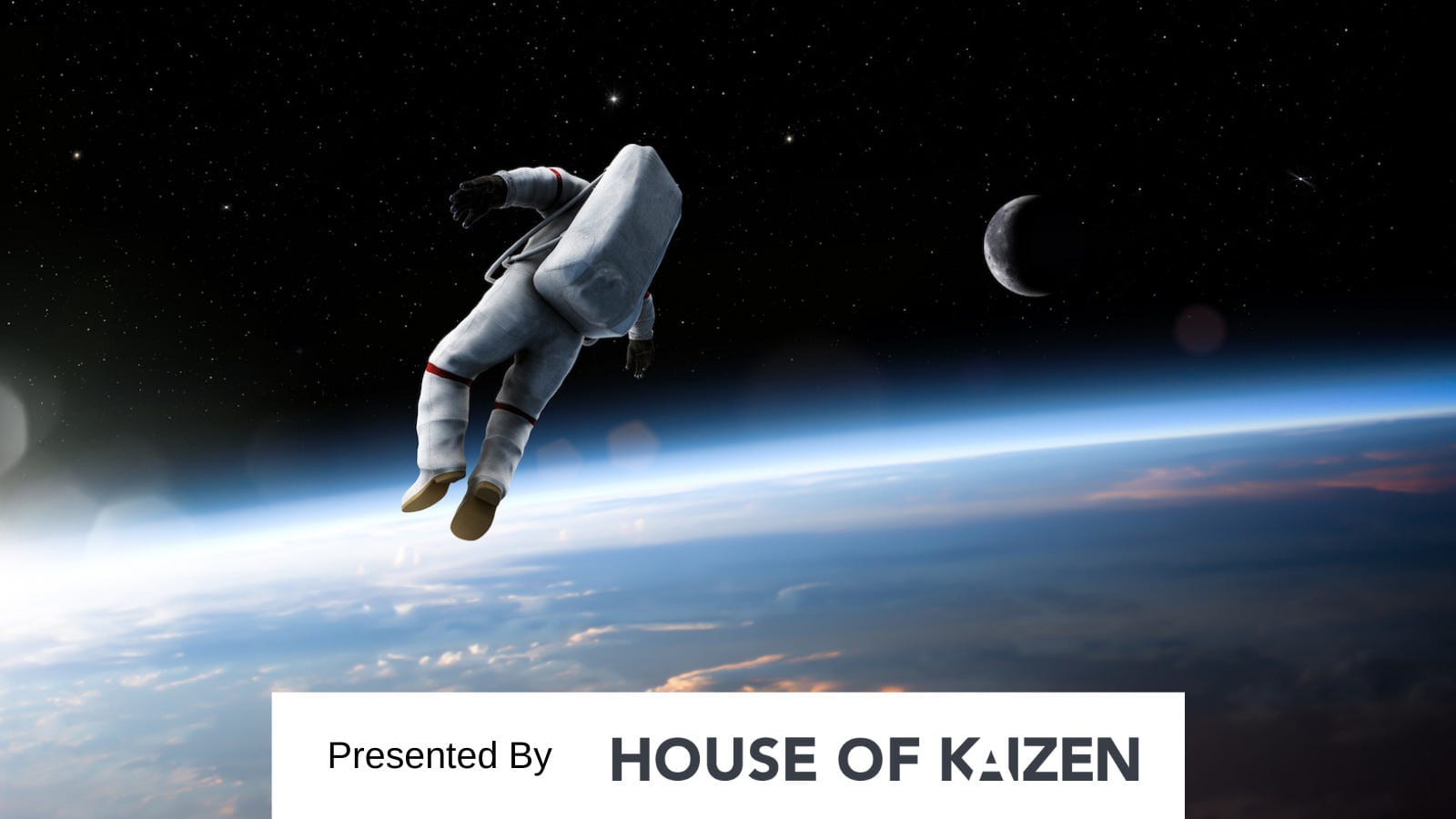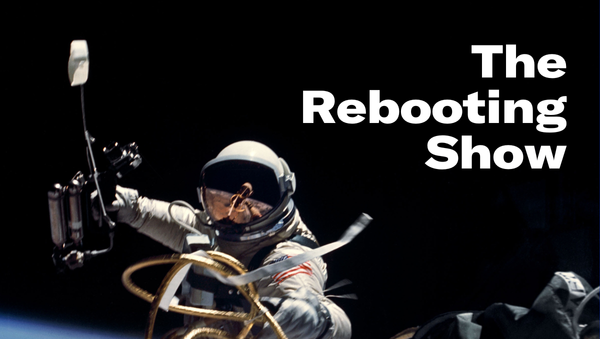The future of work
Jay Lauf on Charter's mission to transform the workplace

The future of work is one of the most fertile topic areas out there. The pandemic caused a reset, when combined with the labor shortage coming out of Covid, and it’s not going back to normal. The Atlantic’s Derek Thompson cited statistics that show basically every industry halted by Covid – from restaurants to cruises – has more or less returned to normal, except ones like movie theaters and offices. I’ve long thought the boss class is kidding themselves about strongarming people back to dreary commutes, fights over who left a coffee mug in the sink, pointless meetings and presenteeism. Work is changing, even if bosses don’t trust people with their cameras off.
That’s why I find the scramble to own the future-of-work category fascinating. Jay Lauf, a cofounder of Charter, a new brand exploring the transformation of work, joined me to discuss how this bootstrapped media company is taking a different path than his previous executive roles at Quartz, The Atlantic and Condé Nast.
“We've run these workplaces,” Jay told on this week’s episode of The Rebooting Show. “We've thought about these workplaces, and we've served different roles within these workplaces. We've been our own test lab in some ways, both prior in our careers and currently, trying to build this out.”
Some takeaways:
Start with an idea. Jay talks about how he and co-founders Kevin Delaney and Erin Grau all felt like they were “scratching an itch.” Media born from a legitimate interest tends to be more valuable than engineered media that looks for an arbitrage opportunity.
Find a high-value area of need. The upending of the work routine during the pandemic was unprecedented. Human resources issues have gone from the sideline to a central organizational challenge.
Embed in a community. Charter is both covering the future of work but also living it as they build their own workplace. Being both a participant and observer is a powerful combination.
Ads and subs aren’t an either-or proposition. Charter wants to develop a business model mostly reliant on direct payments. But that doesn’t mean it is averse to ads. In fact, ads are the majority of its revenue as it determines the best direct-revenue model.
Check out the full episode on Apple Podcasts or Spotify. Let me know what you think: bmorrissey@gmail.com. Thanks to House of Kaizen for its support.
Sponsored

House of Kaizen is an extension of your subscription revenue growth team. Decades of subscription growth experience are brought to bear to get you where you want to be faster with more confidence and efficiency. House of Kaizen works alongside your team to discover, ideate and execute experiments for sustainable growth.
- In-House support: When your team needs augmentation, House of Kaizen is there for you. Through collaborative execution and in-depth training, the House of Kaizen team will help improve, expand, and support your expertise and in-house capabilities.
- Full-Outsourcing: When you need a team of subscription experts to handle subscriber journey optimization, the House of Kaizen team delivers. From digital media to site and product experience optimization, House of Kaizen can manage a complete product growth program rooted in performance efficiency and collaborative growth goals.
Find out why Peter Gray, vp of optimization at The Wall Street Journal, calls House of Kaizen "quite simply the best partner I've ever had.” Matt Cronin, a founding partner at House of Kaizen, has set aside some available times for a consultation.
More on metrics
Last week’s newsletter touched on the need for better metrics for measuring primary-engagement media.
- “You’re so right about the referral programmes. They don’t add anywhere near as much as paid growth for many of the most popular newsletters and it’s impossible to get a counterfactual - if your content is decent it’ll get shared anyway without the promise of a free t-shirt!”
- “Appreciate you referencing us in today's newsletter. Great read, but not correct. Some would call it... fiction. FYI, we do have 4m UNIQUE subscribers to our daily newsletter. We have about 6m total subscriptions.” – Austin Rief, CEO, Morning Brew
- “Newsletters should include a 3 question quiz after the read and if you don’t get 2 of 3 correct you are immediately unsubscribed. Now you are left with engagement numbers that mean engagement.”
OG Twitter
I’ll spare you another hot take on Elon Musk’s weird battle to control Twitter. I have nothing to add to the unenlightening, speculative discourse. On a more personal note, I’m torn by Twitter. I joined back in 2007, when I was a reporter at Adweek, toiling away in my cubicle. Twitter was part of the optimistic phase of the internet, when SXSW was exciting and Barack Obama would follow you. I can remember using the short-code text messages to update Twitter on my crappy flip phone. Those were, in so many ways, simpler times.
The Twitter then, at least the way I remember it, was a community. There was #FollowFriday and “tweetups.” I once had a tweetup at a bar in the East Village and dozens of people I didn’t know showed up. That was exciting. It allowed me an outlet to mix the personal and the professional in a way that helped me differentiate myself and help build a personal reputation. I’ll always have a nostalgic affection for Twitter because of that.
But 15 years later (!), using Twitter can be a chore. The biggest knock on Twitter then was that it was where people went to say what they had for lunch, not that it was the vanguard of fascism, the arbiter of free speech and a hellhole of racist, sexist trolls and shameless content marketers. What Twitter has become is a place that brings out the worst in many people, even in fairly benign forms with the passive-aggressive subtweets, the grubby threads, the smug dunks and the ever-present impulse to mansplain. Before the pandemic, I deleted the Twitter app to try to cut down on my own unhealthy addiction to the adrenaline rush of mindless scrolling. I added it back during the pandemic, but I often regret the time spent/wasted there. I don’t know the answer to the complicated moderation questions. I do know that Twitter, like Facebook, was part of an era that in many ways is ending.

Recommended
Subscription fatigue is real. With inflation making a $12 egg-and-cheese sandwich the norm, people are reacting rationally and cutting back on expenses, with 35% canceling a monthly subscription.
Many subscriptions don’t align the interests of the company with the consumer. Courier has the view from commerce, where many retailers have flocked to subscriptions because it’s good for the retailers, not for their customers. That’s not a long-term approach.
Packy McCormick’s monetization is truly impressive. He’s got a podcast episode with a portfolio company that’s also sponsored by FTX. Chapeau. There are many models beyond paywalls.
Ad products is the hardest role at a publisher, a media exec remarked to me this week. Making a good product is hard enough, but balancing what’s good for the audience, the brand and the advertiser is 3-D chess. Many publications struggle with this and the end result is this kind of actively hostile mobile experience.
The Washington Post Guild took a reportorial approach to addressing the thorny issues of equity, inclusion and pay. These are inevitably fraught issues with high emotions, and it’s good to see rigor applied to identifying problems.
The Recount is distributing a news show through Twitch. I feel like news publishers have wanted Twitch to be a strong distribution channel for several years, but it’s remained mostly tied to gaming and adjacent categories. The Washington Post got some PR and a Webby nomination for launching on Twitch in 2018, including a show called “Playing Games With Politicians.” Now, the Post’s channel is a ghost town.




